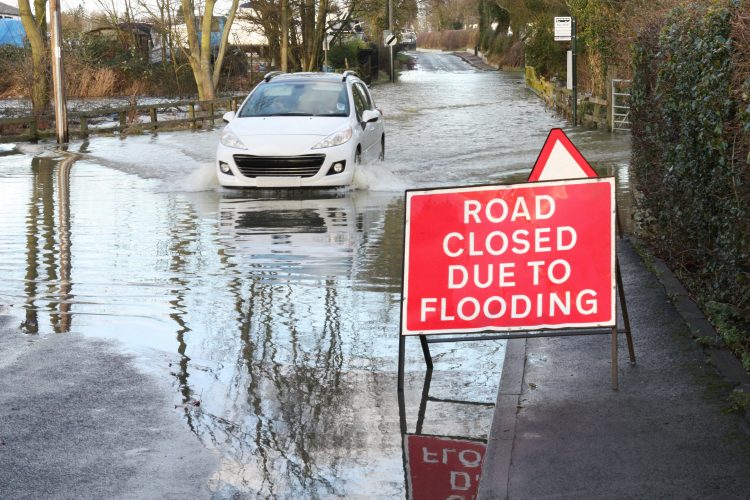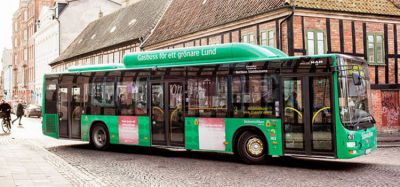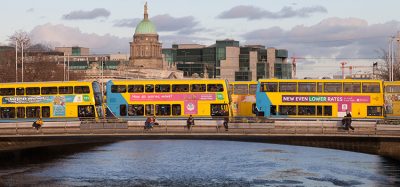Public transport’s role in climate change
- Like
- Digg
- Del
- Tumblr
- VKontakte
- Buffer
- Love This
- Odnoklassniki
- Meneame
- Blogger
- Amazon
- Yahoo Mail
- Gmail
- AOL
- Newsvine
- HackerNews
- Evernote
- MySpace
- Mail.ru
- Viadeo
- Line
- Comments
- Yummly
- SMS
- Viber
- Telegram
- Subscribe
- Skype
- Facebook Messenger
- Kakao
- LiveJournal
- Yammer
- Edgar
- Fintel
- Mix
- Instapaper
- Copy Link
Posted: 17 December 2019 | Phillip Turner - UITP | No comments yet
With climate change now receiving the attention it so urgently requires, Philip Turner, Sustainable Development Manager & European Expert on Sustainable Mobility and Climate at UITP, explains how the organisation is driving change first and foremost at the local level and supporting the modal shift to public transport to help our polluted cities.


I’ve been working in sustainable development my entire career. I’ve witnessed first-hand how vital it is to address the most important issues facing the world in which we live – a great many of which concern our planet.
We hear more and more people discussing climate change and, more importantly, climate action. It’s welcome news to see more and more politicians, decision makers, news reports, interested young people and others across society debating the future of our planet. What is concerning is the time it has taken to bring the seriousness of climate change to the forefront.
The planet is facing a climate emergency, and when facing a crisis for our environment – one that will impact future generations – we must all step up and act.
Throughout my career, having held positions within the British government, Transport for London and now UITP, I’ve known for a long time that public transport can play a vital role in addressing climate change.
By first fighting air pollution at the local level, in the streets and in cities more and more people are calling home, we can bring about lasting change. This is not, however, a new way of thinking. Experts at UITP, and other collaborators within the urban mobility sector, have known this for a long time – global leaders and decision makers also know this. So, alongside our international membership, UITP has taken on the mantle of bringing about lasting change.
Climate Action Manifesto
By creating a detailed Climate Action Manifesto, we are providing decision makers with the tools they need to move this debate forward.
Cities have proven time and again that when restricting private cars, local emissions can be reduced by half. You cannot successfully fight climate change, or reach national targets, without addressing local emissions at the same time.
By first fighting air pollution at the local level, in the streets and in cities more and more people are calling home, we can bring about lasting change
While managing sustainable development within UITP, I’ve seen the commitments national governments have made and I know that in 2020, when they are expected to resubmit new climate action plans, there should be no exception: public transport must appear on every plan.
UITP’s climate action campaign launched in September to an incredible sum of international engagement and action. Our membership, in almost all corners of the earth, has stood side-by-side to lead alongside us. They have collaborated on social media, in the press, and crucially, displaying our plans on their modes in cities where people going about their daily lives can learn how they are contributing to a climate change solution by using public transport.
This plan starts at the local level. We’re encouraging a modal shift to public transport and sustainable urban mobility modes, but what is most important is getting this message to those who can make the decisions that will contribute towards permanent change.
That’s why it has been fantastic to see the enthusiastic response from so many mayors so early in our campaign. Strong collaborations have started with mayors of cities such as Montreal, Amman, Strasbourg, La Paz and Barcelona – with more to come.
We’re encouraging a modal shift to public transport and sustainable urban mobility modes
It’s important to recognise the success of this level of engagement. Mayors are local decision makers; in many cities around the world, it is they who sign off on the vital decisions that impact the way many of us live. Transport and the environment are often areas of governance devolved at the mayoral level and to have their support is not something we take for granted.
Our four-step plan prioritises public transport use to combat emission levels and reduce local air pollution. With these solutions at hand, they can be implemented to keep our cities breathable.


What comes next?
The campaign will continue to be active during events, online, in the news and in person, spreading the word on what needs to be done – and working with our members and decision makers to deliver a strong and clear message: public transport is on our doorsteps and ready to do its part.
We took that message to EUROPEANMOBILITYWEEK where we officially launched our Climate Campaign by engaging with key decision makers to bring our plans to their attention. Our advocacy outreach continued by participating in the World Car Free Day Summit alongside global leaders committed to more efficient, equitable and productive urban land use.
Across the next few months, up until our involvement in the transportation thematic days during COP25, as partners with the United Nations Framework Convention on Climate Change in Santiago, we will focus on climate action.
It’s important to highlight the significance of climate talks taking place in Santiago, Chile this year. Chile is leading its continent with the deployment of electric buses. The role of public transport in lowering emissions and helping to fight climate change is evident, and Chile can show the world that by bringing more electric bus fleets into cities, we can reduce emissions and provide cleaner travel for all.
Decision makers need to act now on the climate crisis we’re all facing. UITP and our membership can lead from the front. We will play a recognisable and important role in this year’s climate talks by showing once more that we can bring solutions to the table. Public transport should always be in the spotlight as it offers so much to our way of living. However, we cannot do this alone; the most pressing issues of our time always require collaborative thinking. I know that a solution to the climate crisis can be found, but it can only be done through teamwork, so let’s move forward together.
Biography
Phillip Turner is UITP’s Sustainable Development Manager & European Expert on Sustainable Mobility and Climate. He specialises in corporate social responsibility and sustainable development policy issues at the European and UN level. He joined UITP from Transport for London’s Sustainable Development Unit, responsible for integrating sustainability issues into its corporate policies and programmes, and reporting to stakeholders and senior management on TfL’s corporate responsibility performance.
Related topics
Air Quality, Public Transport, Sustainable Urban Transport
Issue
Issue 4 2019
Related organisations
International Association for Public Transport (UITP)








